Dedicated to the memory of
Thomas B. Silver
DEMOCRACY IN
California
FIFTH EDITION
POLITICS AND GOVERNMENT
IN THE GOLDEN STATE
BRIAN P. JANISKEE
CALIFORNIA STATE UNIVERSITY, SAN BERNADINO
KEN MASUGI
CLAREMONT INSTITUTE
CHRISTINA G. VILLEGAS
CALIFORNIA STATE UNIVERSITY, SAN BERNADINO
ROWMAN & LITTLEFIELD
Lanham Boulder New York London
Executive Editor: Traci Crowell
Editorial Assistant: Deni Remsberg
Executive Marketing Manager: Amy Whitaker
Interior Designer: Ilze Lemesis
Credits and acknowledgments for material borrowed from other sources, and reproduced with permission, appear on the appropriate page within the text.
Published by Rowman & Littlefield
An imprint of The Rowman & Littlefield Publishing Group, Inc.
4501 Forbes Boulevard, Suite 200, Lanham, Maryland 20706
www.rowman.com
6 Tinworth Street, London SE11 5AL, United Kingdom
Copyright 2020 by The Rowman & Littlefield Publishing Group, Inc.
First Edition published in 2002. Post-Recall Edition published in 2004. Third Edition published in 2011. Fourth Edition published in 2015.
All rights reserved . No part of this book may be reproduced in any form or by any electronic or mechanical means, including information storage and retrieval systems, without written permission from the publisher, except by a reviewer who may quote passages in a review.
British Library Cataloguing in Publication Information Available
Library of Congress Cataloging-in-Publication Data
Names: Janiskee, Brian P., 1967 author. | Masugi, Ken, author. | Villegas, Christina G., author.
Title: Democracy in California : politics and government in the Golden State / Brian P. Janiskee, California State University, San Bernadino, Ken Masugi, Claremont Institute, Christina G. Villegas, California State University, San Bernadino.
Description: Fifth Edition. | Lanham : ROWMAN & LITTLEFIELD, [2019] | Fourth Edition published in 2015T.p. verso. | Includes bibliographical references and index.
Identifiers: LCCN 2019013296 (print) | LCCN 2019013369 (ebook) | ISBN 9781538124611 (electronic) | ISBN 9781538124604 (paper : alk. paper)
Subjects: LCSH: CaliforniaPolitics and governmentTextbooks.
Classification: LCC JK8716 (ebook) | LCC JK8716 .J36 2019 (print) | DDC 320.4974dc23
LC record available at https://lccn.loc.gov/2019013296
 The paper used in this publication meets the minimum requirements of American National Standard for Information SciencesPermanence of Paper for Printed Library Materials, ANSI/NISO Z39.48-1992.
The paper used in this publication meets the minimum requirements of American National Standard for Information SciencesPermanence of Paper for Printed Library Materials, ANSI/NISO Z39.48-1992.
Brief Contents
Contents
To instruct democracy, if possible to reanimate its beliefs, to purify its mores, to regulate its movements, to substitute little by little the science of affairs for its inexperience, and knowledge of its true interests for its blind instincts; to adapt its government to time and place; to modify it according to circumstances and men: such is the first duty imposed on those who direct society in our day.
W ere it an independent nation, California would be the fifth-largest economy in the world, just below Germany and slightly above the United Kingdom. It would also be the worlds strangest democracy. The institutions of federalism and the separation of powers, developed by the US Constitution to enable a large representative democracy to exist, do not characterize California democracy. By contrast, California has a weak, fragmented executive, and local governments depend on the state government in Sacramento for major portions of their budgets. There is no federal analogy by which California counties can be compared with American states under federalism.
Often noted as well is the ethnic composition of California, which would make it a major Latino nation. (It also has the largest percentage of Asians and Asian Americans of any continental state.) But diversity and prosperity do not alone explain Californias government and why Californians govern the way they do. Such an understanding requires an examination of California history, political traditions, and political character. It is the third-largest state, 770 miles long and 250 miles wide at its most distant points. Mountains, deserts, forests, beaches, farmland, and federally owned land (almost half of the total) bound the habitable areas that contain nearly 40 million people, about 12 percent of the US population. California remains an attraction for settlersas it was during the Gold Rush and is for those from abroad today. Do its Pacific and Mexican borders mean an opening to exotic cultures, or are they an invitation to disturbing alien ways? Do they signal opportunity or the need for self-defense?
Californias geographic separation from the United States, and the unique circumstances of its entry into the Union via the Compromise of 1850, has enabled an independent political character to develop. A major example of this independence is the power, by majority popular vote, to amend the state constitution. These initiative, referendum, and recall powers reflect the defining, still-evolving movement within American politics known as Progressivism, which sought to rid politics of corruption by subjecting it to a new, professionalized, and scientific political process. In many regards, from its professional legislature to its centralization of power in Sacramento, from its mood swings on dealing with race and ethnicity to the initiative and referendum, the Golden State has embodied the spirit and reality of Progressivism. Throughout Democracy in California we will note the Progressivist character of California political life, but our primary purpose is to explain Californias governmental institutions and how their dynamics affect our lives, for better and for worse. How do we make sense of California politics? How does it reflect democracys blind instincts, its true interests, or its seemingly boundless opportunities?
In this ambitious effort, as our title reflects, we are guided by Alexis de Tocquevilles classic, Democracy in America . What might a student of Tocqueville or, more important, of American government say on examining California today? We emphasize that our text presupposes no familiarity whatsoever with the classic text by this nineteenth-century French political theorist and statesman (180559); our text stands by itself as a succinct guide to California politics and is intended for the reader who has some basic familiarity with American government and politics.
We begin with elements of Tocquevilles teaching that seem to characterize many Californians (and other Americans): their indifference to politics, their love of novelty, their desire for wealth and status, and their love of freedom balanced with resentment of those they perceive as privileged. From our first chapter on the diversity of California, as Tocqueville might have perceived it, we develop other Tocquevillean themes in subsequent chapters. The two tasks reinforce each other, making possible a more compelling and, frankly, more interesting understanding of Californias political life than hitherto available. At the end of each chapter, we highlight real-world issues taken from the headlines. While it is necessary for the properly educated citizen to understand the mechanics of government, it is not sufficient. Citizens must see the vital connection between the form of government and the substance of everyday political life. It is our hope that the reader will understand and assess the workings of California politics and government and, with encouragement, become one of Tocquevilles engaged citizens.

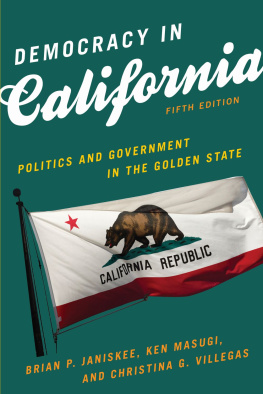
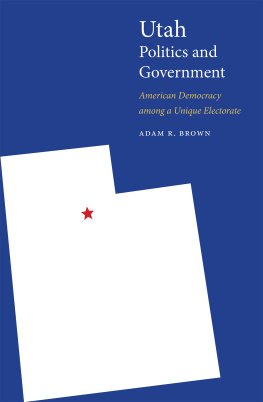
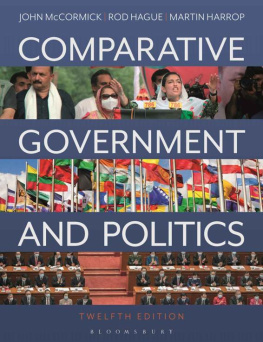
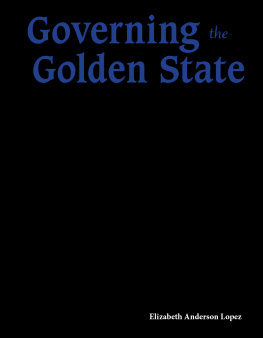

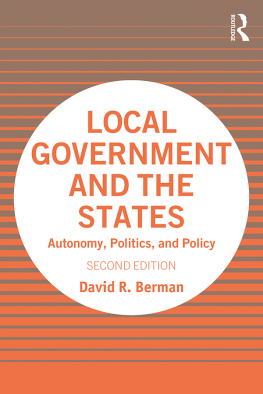
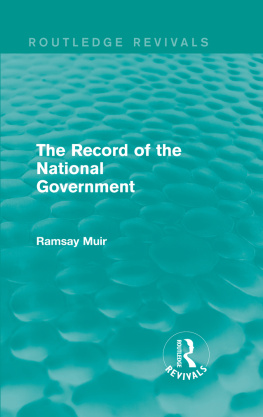
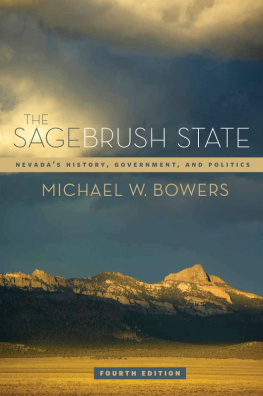
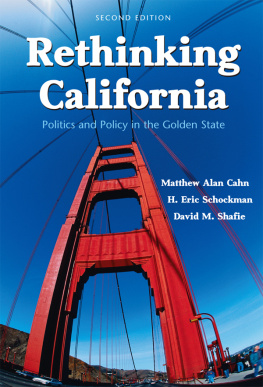

 The paper used in this publication meets the minimum requirements of American National Standard for Information SciencesPermanence of Paper for Printed Library Materials, ANSI/NISO Z39.48-1992.
The paper used in this publication meets the minimum requirements of American National Standard for Information SciencesPermanence of Paper for Printed Library Materials, ANSI/NISO Z39.48-1992.